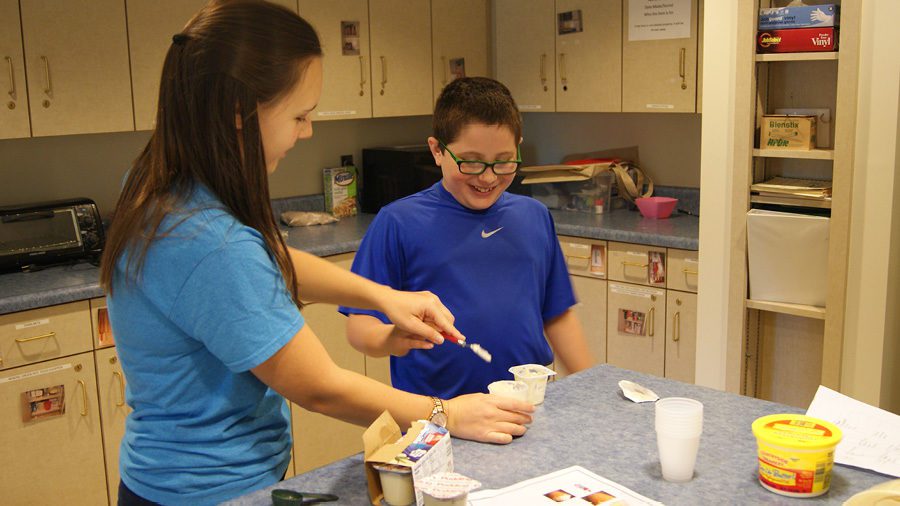At the Watson Institute, a recognized autism school in Western Pennsylvania, staff adapt curriculum for students with autism spectrum disorder and various special needs to ensure they are working toward their educational goals. Part of this adapted curriculum used to prepare for their special education transition focuses on life skills and pre-vocational skills development.
Beginning at age 14, students with special needs, their families and their Individualized Education Plan (IEP) team develop a special education transition plan. This transition plan outlines goals that will help the student with special needs work towards independence after they graduate from the Watson Institute’s educational programming
Special Education Transition with Life Skills
The Watson Institute special education staff recognize the importance of preparing for this future transition and embed life skills development activities into students’ every day curriculum. Jane Singletary, a Senior Occupational Therapist and Team Coordinator at the Education Center Sewickley works with students with special needs in life skills support classrooms to help them with sequencing, assembly and functional skills.
Once a month, students with autism spectrum disorder and other special needs make lunch for staff at the Education Center Sewickley. Students work with Jane and their classroom special education staff to plan the meal, shop for the ingredients, prepare the food and finally package the meal and deliver it to staff members. Some of the lunches they’ve made in the past have included walking tacos, hoagies, chef salads, pepperoni rolls, and a baked potato bar.
“It’s a really nice activity because the students get to make food not only for themselves and to develop their own skills, but they get to do something nice and make lunch for others.” said Emily Furar, a speech therapist at Watson.
The goal of this activity is to help students with special needs work on sequencing, assembly and following instructions to complete a task. All of these are critical life skills necessary to gain independence and develop pre-vocational skills – a valued element to special education transition preparation.
“Each meal has components to the preparation that fit the students’ individual abilities,” said Ashton Appel, a special education teacher at Watson. “This allows each student the chance to work on an activity that brings out their strengths and helps them develop their skills.”
Learn more about the Watson Institute’s special education programs and how staff incorporate life skills development into the curriculum to work towards a smooth special education transition for students with special needs.
